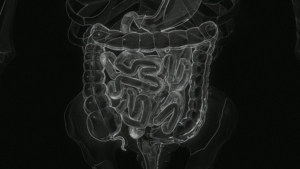
Roche pays US$2.4bn for FMI take-over
Three years ago Roche acquired a majority in shares of Foundation Medicines Inc (FMI), a specialist in cancer panel sequencing, which has build a huge database with cancer mutation profiles. Now Roche paid US2.4bn to complete the take-over.
After efforts of Roche failed to establish an in-house diagnostic genome sequencing solution and shut down its research-only 454 Life Sciences arm by 2013, the pharma/diagnostics giant acquired a 56.3% majority stake in panel sequencing specialist Foundation Medicine Inc (FMI) investing US$1.03bn in shares at a price of US$50 each plus US$150m for further R&D. In the current offering, Roche added US $137 per share, corresponding to a total transaction value of US$2.4bn on a fully diluted basis.
Daniel O’Day, CEO Roche Pharmaceuticals, said, "This is important to our personalised healthcare strategy as we believe molecular insights and the broad availability of high quality comprehensive genomic profiling are key enablers for the development of, and access to, new cancer treatments. We will preserve FMI’s autonomy while supporting them in accelerating their progress."
The FMI take-over is just one piece in a series of recent transactions aiming at digitisation of cancer medicine. Based on the mainstream idea that mutations drive cancer, the company uses FMI’s cancer mutation database for matching genomic profiles derived from individual cancer patient’s tumour biopsies and correlating it to potential best-treatment approaches that are set to be marketed as decision-support solution for oncologists. To complete this offering, Roche has acquired US-based electronic health record provider Flatiron Health to add clinical data to its cancer correlation approach. The company entered into a strategic collaboration with Syapse and partnered with GE to add imaging data to its portfolio that is marketed in major ex-US markets.
On the therapeutics side, Roche’s and other drug developers’ hopes are high to establish real-world data in drug authorisation which would speed up drug development as digitised data are more rapidly available than data from lengthy clinical trials. Companies also hope to be able to convince payors that genomic data can be used to define potential reponders to targeted cancer therapies. The approach, however, has the shortcoming that it can’t predict who will form anti-antibodies making the treatment inefficient.
Some published evidence suggest that only 10-15% of human cancers are evidently caused by mutations, while the rest of tumours occur sporadically, accumulating mutations secondarily.



 Unsplash+
Unsplash+